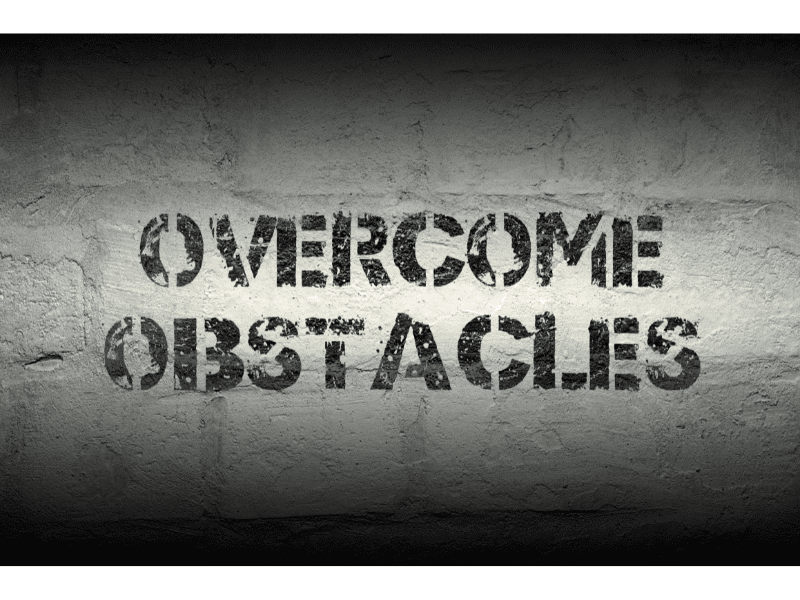In a world full of distractions and obligations, staying motivated on your fitness journey can be a real challenge. Many individuals start with great enthusiasm, only to find their determination waning over time. This article is here to help you reignite that fitness motivation and keep it burning strong. We’ll explore the essential concepts of staying motivated in your fitness endeavors and provide actionable strategies to help you reach your goals.
Table of Contents
Importance of fitness motivation
The importance of fitness motivation cannot be overstated. It serves as the driving force that keeps individuals committed to their health and wellness journey. Motivation provides the mental strength to push through challenges, overcome obstacles, and maintain a consistent exercise routine.
Without it, even the best-laid fitness plans can falter. By understanding the significance of fitness motivation, individuals can unlock their full potential, set and achieve their goals, and ultimately enjoy the long-lasting benefits of a healthy, active lifestyle.
Staying motivated in fitness motivation comes with its share of common challenges. These include Lack of Visible Progress, Plateaus, Time Constraints, Low Energy, Weather and Environment, Boredom, Lack of Motivation, Injury or Health Issues, Negative Self-talk, Distractions, Comparison with Others, External Pressure, Lack of Support, Inflexible Goals, Lifestyle Changes.
To stay motivated, it’s crucial to acknowledge these common challenges and find strategies to address them. Building a supportive environment, seeking accountability, setting realistic goals, and focusing on the intrinsic benefits of exercise can all help you overcome these obstacles and maintain your fitness motivation.
In the quest for fitness motivation, various strategies can help individuals stay on track and achieve their goals. These strategies encompass setting realistic objectives, finding personal reasons for pursuing fitness, designing effective exercise routines, and staying committed even when facing obstacles.
By understanding the importance of a positive mindset, visualization techniques, and seeking support from accountability partners or fitness communities, individuals can bolster their motivation and make lasting progress in their fitness journey.
This article will delve into these strategies in more detail to equip readers with the tools they need to remain motivated and thrive in their pursuit of a healthy lifestyle.
Understanding Fitness Motivation
Fitness motivation is the driving force that keeps you committed to your exercise routine and health goals. It’s the mental and emotional energy that propels you to lace up your sneakers, hit the gym, or opt for a nutritious meal instead of fast food. Understanding fitness motivation means delving into your personal reasons for pursuing a healthier lifestyle.
It’s about finding the ‘why’ behind your fitness journey, whether it’s a desire for better health, improved self-esteem, increased energy, or a specific fitness goal. By grasping the concept of fitness motivation, you can tap into your inner drive and create lasting habits that lead to a fitter and healthier you.
To stay motivated in your fitness journey, it’s crucial to identify your personal reasons for pursuing fitness goals. These reasons can vary from person to person and are deeply rooted in your desires and aspirations.
It might be the wish for a stronger, healthier body, the goal of shedding excess weight, the pursuit of a more energetic and active lifestyle, or the desire to improve overall well-being.
By recognizing and connecting with your unique fitness motivations, you can anchor your commitment and drive, making it easier to overcome challenges and stay on the path to fitness success.
Setting realistic and achievable fitness goals is a fundamental step in staying motivated on your fitness journey. These goals should be specific, measurable, and attainable. Whether it’s aiming to run a 5k, lose a certain amount of weight, or increase your strength, having clear objectives gives you something to strive for.
Realistic goals prevent frustration and disappointment, ensuring your fitness motivation remains high. They provide a roadmap to track progress and celebrate successes along the way, helping you stay committed and driven in your pursuit of a healthier and more active lifestyle.
Creating an Effective Exercise Routine

Designing a personalized exercise routine
Designing a personalized exercise routine is a crucial aspect of staying motivated and achieving your fitness goals. It involves tailoring your workouts to your individual needs, preferences, and fitness levels. Your routine should encompass a variety of exercises that align with your objectives, whether it’s building strength, increasing endurance, or losing weight.
By creating a workout plan that suits your lifestyle and incorporates activities you enjoy, you’re more likely to stay committed. Personalization ensures that your exercise routine is both effective and sustainable, helping you maintain motivation throughout your fitness journey.
| Exercise Type | Frequency | Duration | Notes |
|---|---|---|---|
| Cardiovascular | 3-5 times per week | 30-45 minutes | Choose activities like running, cycling, or swimming |
| Strength Training | 2-3 times per week | 45-60 minutes | Focus on major muscle groups |
| Flexibility & Yoga | 2-3 times per week | 20-30 minutes | Enhance flexibility and balance |
| Rest and Recovery | 1-2 days per week | Varied | Allow muscles to recover and prevent overtraining |
This is just a sample exercise routine. You should adjust the frequency, duration, and exercises based on your fitness level and goals. Always consult with a fitness professional if you’re new to exercise or have any underlying health conditions.
Incorporating variety and setting new challenges in your fitness routine is essential to keep motivation levels high. Doing the same exercises repeatedly can lead to boredom and a plateau in your progress. By introducing new activities, workouts, or challenges, you can stimulate both your body and mind.
This variety not only keeps things interesting but also allows you to target different muscle groups and skills. Whether it’s trying a new sport, exploring different types of workouts, or setting personal records, embracing change and challenges can reignite your fitness motivation.
Tracking your fitness progress and celebrating milestones is a powerful way to maintain fitness motivation. Whether it’s recording the number of miles you run, the weight you lift, or the minutes you hold a yoga pose, tracking your achievements allows you to see how far you’ve come. It also provides a sense of satisfaction and encourages you to keep going.
Celebrating milestones, no matter how small, is equally important. Acknowledge your achievements, whether it’s running your first 5K, reaching a weight loss goal, or mastering a challenging exercise. Recognizing your hard work and celebrating your success is a great way to stay motivated on your fitness journey.
Strategies for Staying Motivated

Cultivating a positive mindset is a key component of staying motivated in your fitness journey. Your thoughts have a powerful influence on your actions and emotions. Positive thinking can help you overcome obstacles, stay focused on your fitness goals, and maintain your enthusiasm for exercise.
To foster a positive mindset, practice self-compassion, and avoid self-criticism. Replace negative thoughts with affirmations and constructive self-talk. Surround yourself with supportive and encouraging individuals who believe in your ability to succeed. Additionally, visualize your fitness success to reinforce a positive mindset.
Picture yourself achieving your goals and reaping the benefits of a healthier and fitter lifestyle. A positive outlook will go a long way in keeping you motivated on your fitness path.
Visualization techniques are powerful tools for boosting fitness motivation. Visualization involves mentally picturing yourself achieving your fitness goals. Close your eyes and imagine the process of exercising, the sweat on your brow, and the satisfaction of completing a challenging workout. Visualize your body becoming stronger and healthier with each session.
This mental imagery not only enhances your motivation but also improves your performance during actual workouts. Additionally, use positive affirmations and mantras during your visualization practice. Repeating phrases like “I am strong” and “I can do this” can reinforce your belief in your abilities.
Whether you’re preparing for a workout or overcoming obstacles, harnessing the strength of your mind through visualization can help you stay on track and committed to your fitness journey.
One of the most effective ways to stay motivated in your fitness journey is by finding accountability partners or joining fitness communities. Accountability partners are individuals who share your fitness motivation and goals and offer mutual support. When you have someone counting on you to work out or eat healthy, it becomes more challenging to skip a session. You can exercise together, celebrate achievements, and lift each other up during tough times.
Fitness communities, whether in person or online, provide a sense of belonging and encouragement. They create a supportive environment where you can share your progress, seek advice, and stay updated on the latest fitness trends. In these communities, you’ll find people who have faced similar challenges and can provide valuable insights.
The combination of accountability partners and fitness communities offers motivation, companionship, and a shared commitment to health and fitness. These connections can significantly increase your chances of staying motivated and reaching your fitness goals.
Overcoming Obstacles and Stay Committed

Managing time constraints and prioritizing fitness is essential for staying motivated in your fitness journey. We all lead busy lives, and finding time for exercise can be a challenge. To overcome this obstacle, it’s crucial to schedule your workouts and treat them as non-negotiable appointments. Block time in your calendar for exercise, just like you would for a meeting or any other commitment.
In addition to scheduling your workouts, consider early morning or late evening sessions to fit them into your day. These times often have fewer distractions and can become part of your daily routine.
Remember that you don’t need to spend hours at the gym to stay fit. Short, intense workouts can be highly effective, and you can even break them up into smaller sessions throughout the day.
Prioritizing fitness motivation also involves setting boundaries and learning to say no to other commitments that may interfere with your exercise routine. When you make your health a priority, you’ll find creative ways to manage your time and maintain your fitness motivation.
Dealing with plateaus and setbacks
Dealing with plateaus and setbacks is a common challenge in any fitness journey, but it’s essential to stay motivated and continue progressing. Plateaus occur when your progress stalls, and setbacks can be caused by various factors. Here are some strategies to overcome them:
- Change Your Routine: If you’ve hit a plateau, it may be time to shake up your workout routine. Try new exercises or variations of your current ones. Your body may have adapted to your old routine, and introducing something different can kick-start progress.
- Set Clear Goals: Revisit your fitness goals. Setting clear, achievable goals will provide you with direction and motivation. Knowing what you’re working towards can help you stay focused.
- Nutrition and Recovery: Evaluate your diet and recovery. Are you fueling your body with the right nutrients and getting enough rest? Sometimes, plateaus are the result of inadequate nutrition or overtraining. Adjust your diet and ensure you’re allowing your body to recover properly.
- Mindset: A positive mindset is crucial. Don’t get discouraged by plateaus or setbacks. Use them as opportunities to learn and grow. Recognize that everyone experiences them, and they are part of the fitness journey.
- Seek Support: Consider seeking advice from a fitness trainer or coach. They can provide guidance and help you break through plateaus. Additionally, connecting with others who are on a similar journey can be motivating.
- Be Patient: Plateaus and setbacks are temporary. Stay patient and persistent. It might take some time to see progress again, but your dedication will pay off.
Remember, it’s normal to face obstacles in your fitness journey. How you respond to them is what truly matters. Use these challenges as opportunities to become a stronger, more resilient version of yourself.
Finding alternative forms of exercise and adapting to challenges
Finding alternative forms of exercise and adapting to challenges is an important aspect of maintaining your fitness motivation. When you encounter obstacles or setbacks, it’s crucial to be flexible and creative in your approach. Here are some strategies to help you find alternative forms of exercise and adapt to challenges:
- Try New Workouts: If your usual exercise routine becomes monotonous or you face challenges in pursuing it, explore new workouts. Consider activities you haven’t tried before, such as yoga, Pilates, dance, or martial arts. These can not only keep things interesting but also target different muscle groups.
- Outdoor Activities: Embrace outdoor activities like hiking, cycling, or trail running. Nature provides a refreshing change of scenery, and outdoor workouts can be invigorating. Look for local parks and trails to explore.
- Home Workouts: If time or location constraints are an issue, home workouts can be a great alternative. There are numerous online resources, apps, and workout videos that offer a wide range of exercises you can do from the comfort of your home.
- Adaptive Workouts: In case of injuries or physical limitations, consider adaptive workouts. These are tailored to your specific needs and can aid in rehabilitation. Consulting a physical therapist or fitness professional for guidance is advisable.
- Group Fitness Classes: Join group fitness classes in your community or online. Being part of a group can provide motivation and accountability. Many classes offer modifications for various fitness levels.
- Interval Training: Incorporate interval training into your routine. This involves alternating between high-intensity and low-intensity exercises. It’s an efficient way to boost your fitness and overcome plateaus.
- Cross-Training: Cross-training involves combining different types of exercises to work various muscle groups. It can prevent overuse injuries and add variety to your routine.
- Adapting to Life Changes: If life changes, such as becoming a parent or a busy work schedule, make it challenging to maintain your fitness routine, adapt to these changes. Incorporate short, intense workouts or break your exercise into smaller segments throughout the day.
- Mindful Movement: Practices like tai chi or qi gong emphasize mindful movement. They not only improve physical fitness but also enhance mental well-being.
- Set New Goals: When adapting to challenges, set new fitness goals that align with your current circumstances. Goals give you something to strive for and help maintain your motivation.
Remember, staying adaptable and open to new forms of exercise is key to overcoming challenges in your fitness journey. It keeps your routine fresh and exciting, ensuring that you continue to progress and stay motivated.
Celebrating Wins and Acknowledging Progress

Recognizing and rewarding achievements
Recognizing and rewarding achievements plays a vital role in sustaining your fitness motivation. Celebrating milestones, both big and small, is an effective way to stay committed to your fitness journey. Here’s how you can acknowledge your accomplishments and keep the motivation alive:
- Set Milestones: Break your long-term fitness goals into smaller, achievable milestones. For example, if your goal is to run a marathon, your milestones could include completing a 5k, 10k, and half-marathon. These intermediate targets make your larger goal feel more attainable.
- Track Your Progress: Use a fitness journal, app, or wearable device to track your progress. Documenting your workouts, measurements, and achievements helps you visualize how far you’ve come. It’s a great motivator.
- Celebrate Achievements: When you reach a milestone, take the time to celebrate it. Treat yourself to something special, like a healthy meal at your favorite restaurant, a massage, or a new workout outfit. These rewards serve as positive reinforcement.
- Share Your Success: Share your fitness achievements with friends and family. Social support and recognition from loved ones can be incredibly motivating. You can also consider sharing your journey on social media or in a fitness community.
- Compete with Yourself: Turn your fitness journey into a competition with yourself. Challenge yourself to improve your personal records, whether it’s lifting more weight, running faster, or doing more push-ups. The desire to beat your own records can be highly motivating.
- Create a Vision Board: A vision board is a visual representation of your fitness goals. Include pictures, quotes, and images that inspire you. Place it where you can see it daily to remind yourself of your aspirations.
- Use Positive Self-Talk: Develop a habit of positive self-talk. Instead of focusing on what you haven’t achieved, emphasize your accomplishments and progress. Encouraging yourself can boost your confidence and motivation.
- Form Healthy Habits: Recognize that achieving fitness milestones is not just about reaching a number on a scale or a specific fitness level. It’s also about adopting healthy habits. Celebrate the positive changes in your lifestyle and the habits you’ve built.
- Reward Consistency: Sometimes, the most significant achievement is staying consistent with your fitness routine. Make sure to reward yourself for maintaining a regular exercise schedule. Even if your progress is slow, consistency is a success in itself.
- Reflect and Set New Goals: Take time to reflect on your journey. Recognize the obstacles you’ve overcome and the determination you’ve shown. Then, set new fitness goals to keep the momentum going.
By acknowledging and rewarding your achievements, you reinforce the idea that your efforts are worthwhile. This positive reinforcement can be a powerful motivator to keep you on the path to a healthier, fitter lifestyle.
Reflecting on the positive impact of fitness on overall well-being
Reflecting on the positive impact of fitness on overall well-being is an essential part of staying motivated in your fitness journey. Here’s how recognizing the broader benefits of fitness can help you stay committed:
- Improved Physical Health: Regular exercise leads to improved physical health. Reflect on how your fitness journey has led to a stronger and healthier body. You may notice increased stamina, better cardiovascular health, and more efficient metabolism. Consider how these improvements contribute to your overall well-being.
- Enhanced Mental Health: Physical activity has a profound impact on mental health. Reflect on how exercise has reduced stress, anxiety, and depression in your life. Think about the increased feelings of happiness and well-being that accompany regular workouts.
- Increased Energy: Consider how your fitness routine has boosted your energy levels. You might notice that you’re more alert, focused, and ready to take on daily challenges. Increased energy enhances your overall quality of life.
- Better Sleep: Reflect on the improvements in your sleep patterns. Regular exercise often leads to more restful and rejuvenating sleep. Adequate sleep is crucial for both physical and mental health.
- Enhanced Self-Confidence: Think about the boost in self-confidence you’ve gained from your fitness accomplishments. Achieving fitness goals can make you feel more confident in various areas of your life, from work to personal relationships.
- Healthy Habits: Recognize how your fitness journey has encouraged the adoption of other healthy habits. A commitment to exercise often extends to better eating choices, stress management, and overall self-care.
- Disease Prevention: Regular exercise can reduce the risk of chronic diseases like heart disease, diabetes, and certain cancers. Reflect on how these disease prevention benefits contribute to your long-term well-being.
- Increased Longevity: Understand that staying active and fit is linked to a longer, healthier life. Reflect on the prospect of enjoying more years of well-being with your loved ones.
- Quality of Life: Think about how your fitness journey has enhanced your overall quality of life. You’re better equipped to enjoy physical activities, travel, and various experiences with friends and family.
- Stress Reduction: Physical activity serves as an effective stress reliever. Reflect on how your fitness routine helps you manage life’s challenges with a clearer, calmer mind.
- Personal Growth: Consider how your fitness journey is a path of personal growth. It requires discipline, perseverance, and the ability to set and achieve goals, all of which can be applied to various aspects of your life.
- Community and Social Connections: Fitness activities often lead to connections with like-minded individuals. Reflect on the friendships and sense of community that have developed through fitness classes, clubs, or team sports.
Reflecting on the positive impact of fitness on overall well-being is a powerful motivator. It reinforces the idea that fitness is not just about appearances or numbers but about living a healthier, happier life. This awareness can be a driving force that keeps you committed to your fitness journey.
Setting new goals and continuing the fitness journey
Setting new fitness goals and continuing your fitness journey is crucial for maintaining motivation and long-term success. Here’s why it’s essential and how to do it effectively:
- Sustained Progress: Fitness is a journey, not a destination. Setting new goals ensures that you continue to make progress and avoid plateaus.
- Motivation: New goals provide fresh motivation. Achieving them gives you a sense of accomplishment and encourages you to keep going.
- Variety: Changing your goals keeps your fitness routine exciting and prevents boredom.
- Tips for Setting and Achieving New Fitness Goals:
- Specific Goals: Make your goals specific, measurable, achievable, relevant, and time-bound (SMART). For example, rather than saying, “I want to get in shape,” say, “I want to run a 5k race in three months.”
- Short-Term and Long-Term Goals: Have a mix of short-term and long-term goals. Short-term goals can be achieved in a few weeks or months, while long-term goals might take a year or more.
- Celebrate Achievements: When you reach a goal, celebrate your achievement. Reward yourself with something meaningful – it could be a small treat, new workout gear, or a relaxing spa day.
- Progress Tracking: Keep track of your progress. Maintain a fitness journal, use apps, or take regular measurements. This helps you see how far you’ve come.
- Consult a Trainer: If you’re uncertain about setting appropriate goals, consider consulting a fitness trainer or coach. They can help you define realistic objectives based on your current fitness level and capabilities.
- Periodic Adjustments: Reevaluate your goals periodically. As you accomplish them, you may want to raise the bar or shift your focus. For example, you might transition from weight loss to muscle building.
- Balance and Variety: Ensure a balance of fitness goals. Include objectives related to cardio, strength, flexibility, and overall health. Variety prevents overuse injuries and keeps things interesting.
- Incorporate Fun: Make some of your goals enjoyable. This could involve participating in a fun run, trying a new sport, or joining a dance class.
- Accountability: Share your goals with a friend or workout partner who can help hold you accountable. You can work on goals together and celebrate your successes.
- Mindfulness: Consider the mental aspect of fitness. Goals related to stress reduction, meditation, or improved sleep can be just as important as physical goals.
- Adaptability: Be open to adapting your goals. Life can throw unexpected challenges your way. If you face an injury or other obstacle, don’t be discouraged. Adjust your goals accordingly and keep moving forward.
Remember that your fitness journey is a personal one. Your goals should be tailored to your individual interests and abilities. By setting and achieving new fitness goals, you ensure that your fitness journey remains dynamic, exciting, and fulfilling. It’s a path to long-term health and well-being.
Recap of strategies for staying motivated in fitness
Staying motivated in fitness involves understanding your “why,” setting specific goals, cultivating a positive mindset, finding support systems, and adapting to challenges. To stay on track, celebrate achievements, reflect on the positive impact of fitness motivation on your overall well-being, and always be ready to set new goals to keep the motivation alive. Remember, fitness is a lifelong journey, and motivation is the key to success.
No matter where you are on your fitness journey, remember that taking the first step is a significant achievement. Whether you’re just starting or picking up from where you left off, your fitness goals are within reach. Stay committed to your well-being, embrace each day as a chance to grow stronger, and keep moving forward.
Your journey is unique, and every effort, no matter how small, brings you closer to your goals. Believe in yourself, stay motivated, and let the pursuit of a healthier, fitter life be a fulfilling adventure.

In conclusion, the importance of fitness motivation cannot be overstated. It is the driving force that propels you toward your fitness goals, keeps you going when challenges arise, and ultimately leads to a healthier, more vibrant life.
By understanding what motivates you, setting achievable goals, maintaining a positive mindset, and seeking support when needed, you can unlock the full potential of your fitness journey. Remember, fitness is not just about physical health; it’s a journey of self-improvement, self-care, and a path to a more fulfilling life.
So, embrace the power of motivation, stay committed to your fitness goals, and enjoy the countless benefits of an active and fit lifestyle. Your health and happiness are worth every step of the way.
Also Read: UNLOCKING VITALITY: YOUR COMPREHENSIVE GUIDE TO HEALTH AND FITNESS

